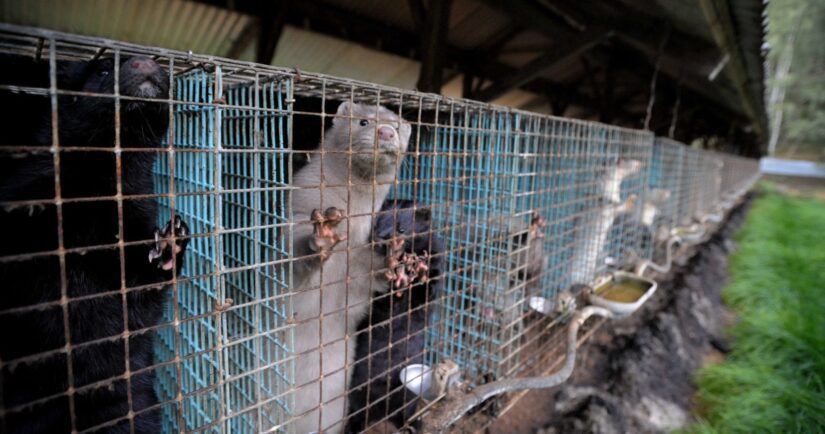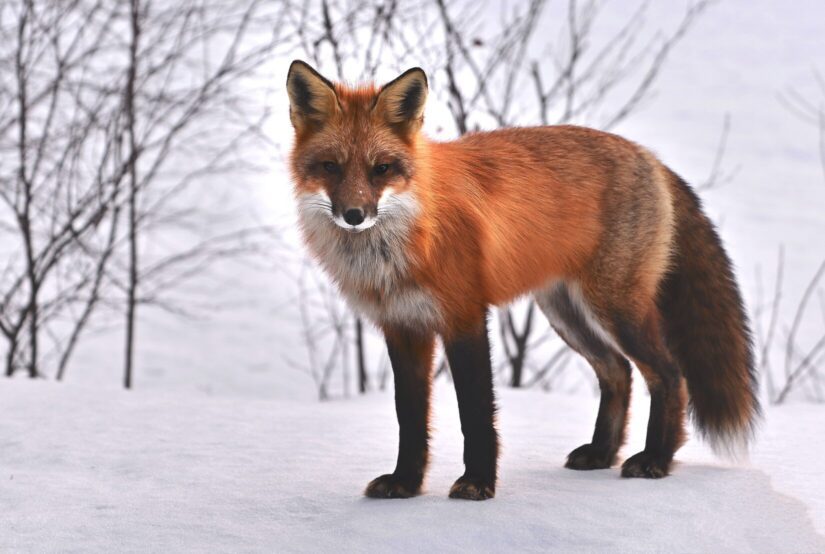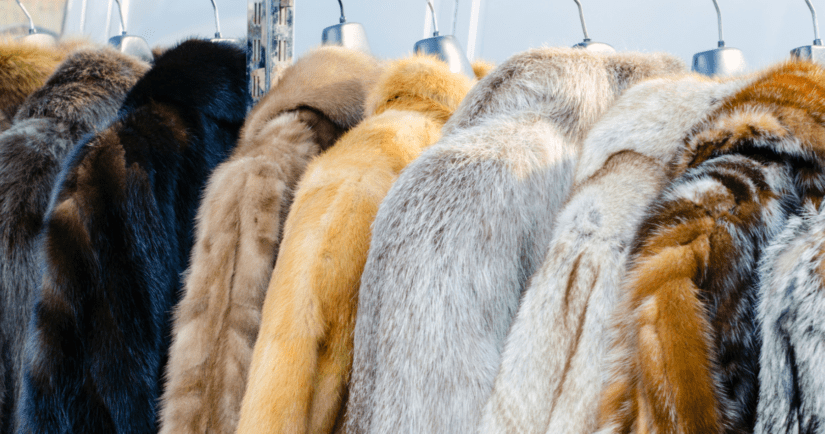Mink farms phased out in B.C.
The BC SPCA would like to thank the tens of thousands of British Columbians who spoke out against the suffering of mink on commercial farms in B.C. The BC SPCA actively campaigned from June 2020 to November 2021 for an end to the practice of farming mink, who are raised and killed solely for pelts sold to luxury fashion industries overseas.
In 2021, the provincial government announced a ban on live mink on farms after April 2023, with a full shut-down of the industry in B.C. by 2025.
There is no such thing as “humane”, “ethical” or “animal-friendly” farmed fur when it comes to fashion. The sad reality is that animals suffer when we use fur to make or decorate jackets, boots, hats, and gloves. Most people can’t tell the difference between real and fake fur, and the inadequacies in Canadian labeling laws mean you could be wearing real fur without knowing!
The BC SPCA is opposed to killing animals for clothing and fashion – wild animals suffer when raised on fur farms and can experience cruel deaths when killed in nature.

Fur farming
Fur farming is inherently inhumane, as wild animals are bred and raised in captivity for our use. Even after generations of hand-raising, these animals are wild in nature. They still have the animal welfare needs of their wild counterparts, which cannot be met on a farm.
Hundreds of thousands of animals are farmed for their fur in Canada each year, the most common two animals being mink and fox. In B.C., wild animals can be farmed for their fur under the Animal Health Act and the Fur Farm Regulation.
In 2018, 98 mink farms and 27 fox farms existed across Canada. In that year, over 260,000 mink were killed for fur in B.C. As of 2021, there were 9 mink farms and one chinchilla farm in B.C., almost all of which were in the Fraser Valley. With the government’s announcement to phase-out mink farms, there are no more mink farms in B.C. Fortunately, there are no fox farms in B.C. at this time. The one chinchilla farm remains.
The BC SPCA recognizes and affirms the inherent rights of Indigenous peoples to harvest and trap native animals for cultural, ceremonial, and traditional purposes. Commercial fur farms limit the economic opportunities of Indigenous people by flooding the market with industrially raised goods and are inherently in conflict with traditional Indigenous values. The Union of BC Indian Chiefs issued their own moratorium on mink farming on April 6, 2021.
Mink
Mink are bred once per year and give birth in the spring. After being weaned from their mothers, mink are housed in small, wire mesh cages. Come winter when their fur coats are fully developed, they are killed on-site at the farm. The furs are shipped to an auction house where they are graded and sold, often to international markets. Mink oil is also harvested and commonly used as a leather conditioner.
Mink and COVID-19
Both wild and farmed mink are susceptible to COVID-19. Ahead of the three outbreaks of COVID-19 on mink farms, the BC SPCA warned the provincial government of the risk to public health by allowing fur farms to continue to operate during a pandemic. The cramped conditions of thousands of mink on farms create dangerous opportunities for the spread of SARS-CoV-2.
In 2021, after 17 months of animal advocates urging government action, the Ministry of Agriculture, Food and Fisheries announced a phase-out of the mink industry in B.C. due to public health concerns.
Fox
Similar to mink, foxes raised on fur farms are bred once per year and give birth in the spring. After weaning, the pups are also housed in restrictive wire mesh pens. Their fur coats are ready for harvesting in the winter, at which point they are killed on-farm by electrocution.

The Code of Practice for farmed mink and fox
The BC SPCA is opposed to mink and fox farming, but we do recognize this is a legal industry. Until the fur industry no longer exists, we expect all farms to meet the Canadian Code of Practice for the Care and Handling of Farmed Mink and the Code of Practice for the Care and Handling of Farmed Fox.
In 2021, amendments to the mink Code halted the transition to larger cage sizes and still permits euthanasia methods that cause distress.
Although the Canada Mink Breeders Association suggests all members follow this minimum standard, there is no independent monitoring in place, meaning there is no assurance that animal care standards are being met. Learn more about farm animal welfare laws in Canada.
Other types of fur farming
Currently, only chinchilla are farmed for fur in British Columbia. However, there is no ban on farming animals like foxes in our province, meaning someone could apply for a permit to start up a fox farm if they wanted to. Thousands of people continue to support a complete ban on all types of fur farming in B.C. by signing petitions and reaching out to the government.
Fur in fashion
In B.C., coyotes, rabbits, raccoons, mink, beaver, foxes and many other animals are killed for their fur. Not all items made in Canada containing fur are required to be labeled as such. This means handbags, toys, shoes or other items could be made of real fur without you knowing. Not only is fur used in fashion, but also in the cosmetic industry. Mink fur is harvested and used for human eyelash extensions, called “mink lashes.”
There is no guarantee that “faux” fur coats and other clothing items do not contain real fur to some extent, and some fur products imported and sold in Canada may even be made from cats or dogs.
Leg hold traps or snares often used by trappers are still legal in B.C. when used within 200 meters of a dwelling, despite their inherently inhumane nature. Even the trappers’ “humane trapping” methods allow animals to suffer for up to 72 hours on trap lines before they are checked.
In June 2021, after mounting public pressure, Canada Goose joined many other international brands and committed to going fur-free in 2022.

